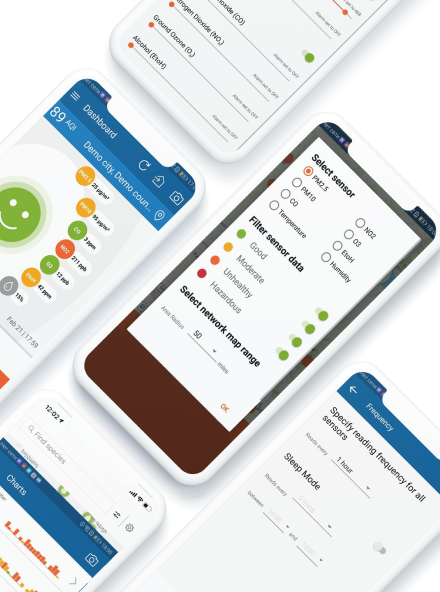
Our Take on Software Development Outsourcing: An Interview with Armen Kocharyan
1 Jun 2022

1. How has outsourcing changed in the last 10 years?
The main change that I see in outsourcing is that it has transitioned from coding-as-a-service into the business realm. First, it was mere coding services, then coding with quality assurance, then business analysis was added to the equation. Now, software outsourcing services are all about business integration. What I mean by that is that you have to know your client’s business in order to be able to effectively solve problems with the software that you deliver. You become an integral part of their team through strategic framework agreements. So, while cost-efficiency is still a very important reason as to why businesses choose to outsource their software development, it takes a back seat to the new role of outsourcing, which is that of a trusted partner that is able to dive deep into their business needs and deliver.
2. What do companies look for in an outsourcing partner?
The first thing they look for is trust, and cultivating that trust is a journey. What I’ve learned over the years, is that you can’t win the clients’ trust with just one thing. It’s an amalgam of the experiences they have with your company and how open and candid you are in your communication. Clients are able to sense whether you really care about helping them achieve their vision or whether you’re just trying to close the deal by saying what they want to hear. Clients often want you to have experience in their particular verticals, and sometimes that is a decisive factor in their software vendor selection process. However, more often than not, they are looking for a tech partner that is willing to go on that journey with them.
It all starts with the first impression your company makes on the client and the image it’s putting out there. Then comes the first point of contact with a business development representative and how well they are able to convey a feeling of reliability to the client. This call is usually followed by a call with the technical team, who give their professional take on the problem the client is trying to solve. If the client is satisfied with the depth of our technical knowledge we go further to understand the project management approach, and then move on to the realm of business analysis. It is only after that that we pass the project on to the development and production team.
This process is not for our benefit only – it helps our client company stakeholders get on the same page and develop a shared vision of their digital future and how we can enable them through technology on this journey.
3. What partnership models work best with VOLO?
VOLO is driven by forming long-term relationships with our partner-clients. We don’t commit to short-lived one-time projects. So, to reiterate, our clients are the ones that see us as a strategic, long-term partner that is committed to their success.

During our initial discovery calls, we always ask our partner-clients about their vision, their dreams, and how we can have an impact in helping them realize that vision. Come to think of it, the vast majority of our successful client onboarding cases started with them telling us about their vision, the big picture, and how they saw our collaboration evolving. A testament to this is the fact that we have over 4-year long partnerships with around 80% of our clients.
We also had cases with potential clients coming to us with the sole need of a particular technical skillset or simply asking for CVs of our employees. These cases haven’t been as successful in terms of conversion, because ours is a more institutional, problem-solving approach to software development. In other words, when there is a profound lack of trust, and the client feels the need to micromanage, we tend not to go forward with the project.
So, to recap, we thrive in partnerships that are driven by trust, open communication, flexibility, and the mutual quest for successful outcomes. This is how we create an environment where every member is committed to serving their purpose in the creation of something special and useful.
4. In which sectors do you feel most comfortable?
Although we onboard clients regardless of the verticals they operate in, we have organically amassed considerable experience in the B2B sphere, providing Fintech, Govtech, Supply Chain and Logistics, Healthcare, Consulting, and Human Resources Management Solutions.
5. What problems do you help them solve?
We help our partner-clients improve their business environments, which doesn’t happen overnight. True digital transformation takes time and commitment on both sides, which means that we are in it for the long haul.
We help our clients scale, and our 16-year experience serves as a means to that end. We have seen it all over this decade and a half, which is exactly why we are able to offer a best-practices-based approach to our partners, helping them avoid common traps and bypass difficulties. It’s all quite cyclical in nature: we put our experience to use for our clients, and, in turn, gain more knowledge and proficiency from each additional project.
6. How has the software that you’ve built in collaboration with your clients accounted for the success of your clients’ companies?
Each sprint, each milestone is planned in accordance with the business vision of our partner-clients. We contribute to that vision by automating their workflows and improving their business processes through new features and fixes to existing ones, raising their efficiency, continuously upgrading and improving their systems, constantly improving on quality, and keeping them up to date with the ever-changing world of IT.
7. How is ownership mentality reflected in your approach to software outsourcing?
As a software development company, we are in the business of serving. We have found that a culture of servitude results in an attitude of customer-centricity. We proudly serve the needs of our customers, because in our definition serving is making something better than it was before. In other words, we hear our customers with the aim of relieving their burdens and giving solutions to their pain points.
I also want to emphasize the fact that time is our most precious resource. If you’re spending your time doing something, you have to be conscious of the fact that you are spending it in order to solve a problem that you care about or to contribute to something bigger. If you don’t have a sense of ownership over what you do, it quite simply means that you are wasting your time, regardless of whether you work in a product or a service company. At the end of the day, you have to feel proud of the work you’ve done. This is the kind of approach we like to cultivate in our teams – we give them sufficient control and autonomy over their projects, so that they can have a sense of pride and accomplishment towards their delivery.



